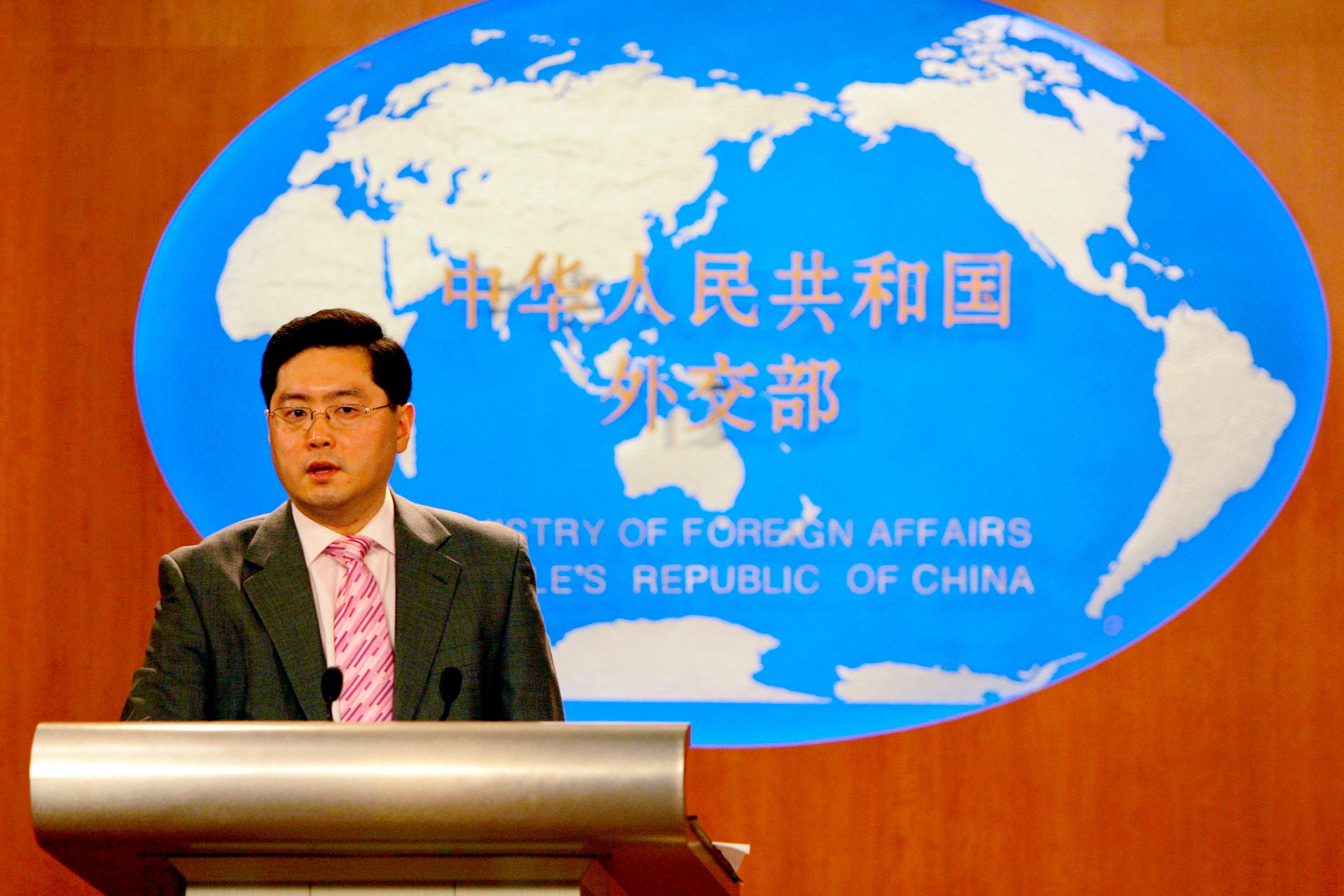China sends new ambassador to US amid strained ties
China’s new ambassador to the United States has outlined the challenges the two countries face in what has become an increasingly competitive and contentious relationship, while refraining from any criticism in short remarks after arriving to take up his new post

Your support helps us to tell the story
From reproductive rights to climate change to Big Tech, The Independent is on the ground when the story is developing. Whether it's investigating the financials of Elon Musk's pro-Trump PAC or producing our latest documentary, 'The A Word', which shines a light on the American women fighting for reproductive rights, we know how important it is to parse out the facts from the messaging.
At such a critical moment in US history, we need reporters on the ground. Your donation allows us to keep sending journalists to speak to both sides of the story.
The Independent is trusted by Americans across the entire political spectrum. And unlike many other quality news outlets, we choose not to lock Americans out of our reporting and analysis with paywalls. We believe quality journalism should be available to everyone, paid for by those who can afford it.
Your support makes all the difference.China s new ambassador to the United States outlined the challenges the two countries face in what has become an increasingly competitive and contentious relationship, while refraining from any criticism in short remarks after arriving to take up his new post.
“China and the United States are entering a new round of mutual exploration, understanding and adaptation, trying to find a way to get along with each other in the new era," Qin Gang said in remarks posted by the Chinese Embassy in Washington after his arrival Wednesday.
Qin’s arrival comes as relations with the U.S. have plunged to their worst level in decades with no sign of bottoming out. The two sides remain sharply at odds over a host of issues, including trade, technology, cybersecurity, human rights and China’s increasingly assertive foreign policy under President Xi Jinping
Qin, 55, most recently was one of China’s nine vice foreign ministers and has been ministry spokesperson twice, gaining a reputation for tart responses that have now become standard fare among those in that position.
“His open remarks towards the West and the U.S. are tougher than Chinese ambassadors of previous terms,” said Shi Yinhong, professor of international relations at Renmin University in Beijing
The U.S. currently has no ambassador in Beijing, although President Joe Biden is expected to nominate Nicholas Burns, a former ambassador to NATO and State Department spokesperson.
Relations between the countries nosedived under Biden’s predecessor, Donald Trump, but high-level meetings this week in Tianjin, China, again lay bare the deep divisions between them.
Chinese Vice Foreign Minister Xie Feng told U.S. Deputy Secretary of State Wendy Sherman that the United States was the “inventor, and patent and intellectual property owner” of coercive diplomacy.
In a separate meeting with Sherman, Chinese Foreign Minister Wang Yi said China would not tolerate what it considered U.S. interference in its internal affairs and key development interests.
Sherman, in an interview after the meetings, said human rights are not just an internal matter and called on China to work with the United States on global issues as a responsible great power.
Qin replaces Cui Tiankai, who was ambassador to the United States for eight years during a steady deterioration in ties.
Qin served three tours at the Chinese Embassy in London and headed the Protocol Department but has not held any positions directly responsible for relations with the U.S., according to his official resume on the ministry website.
As head of protocol, he worked directly with Xi and has extensive experience accompanying Chinese leaders abroad.
Shi cautioned that the state of U.S.-China relations would limit the influence of any ambassador.
“Under the current circumstances of full-on competition and struggle between China and the U.S., I don’t think any ambassador could have a significant impact on relations, no matter whether he is intended to be tougher or milder in implementing policies,” he said.